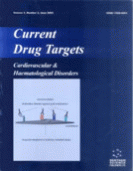Abstract
Recent molecular studies, in particular investigations of subjects with monogenic disorders of lipoprotein metabolism and studies of induced-mutant mice, have increased the understanding of intestinal sterol absorption. Some of these genes encode adenosine triphosphate [ATP] binding cassette (ABC) transporters that transport dietary cholesterol from enterocytes back out to the intestinal lumen, thereby limiting the amount of cholesterol absorbed. ABC transporters also provide an effective barrier against the absorption of plant sterols, which are normally not absorbed in significant quantities by humans. This mechanism was clarified by the discovery that defects in two adjacent genes encoding ABC transporters are the molecular basis of sitosterolemia, a rare autosomal recessive disease in which plant sterols are absorbed due to failure of intestinal barrier to their absorption. Furthermore, recent experiments performed in inducedmutant mice have solidified the importance of these transporters in intestinal sterol absorption. Together with new developments in the biology of bile acids, sterol absorption is providing interesting directions for metabolism research. In addition to elucidating some of the molecular mechanisms of sterol absorption, these recent findings may lead to new therapeutic options to treat hypercholesterolemia and to help patients at risk of vascular disease reach ever-more stringent target levels.
Keywords: sterols, intestinal absorption, nuclear hormone receptors, abc transporters, sitosterolemia, cholesterol esters
 17
17













